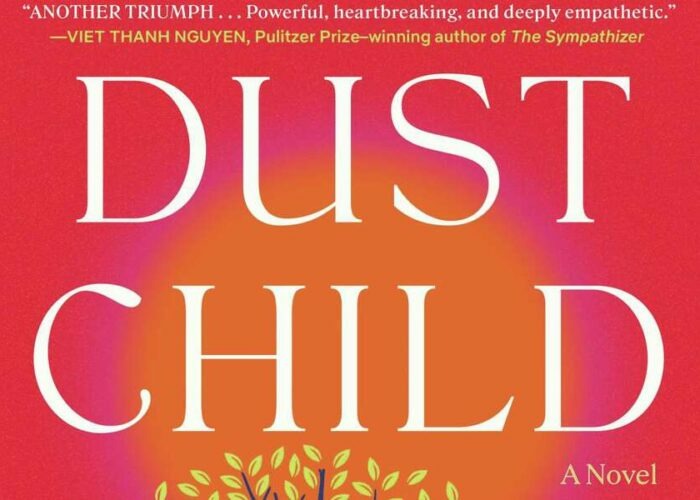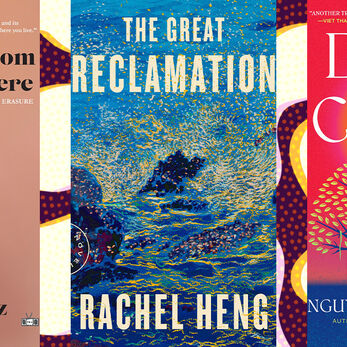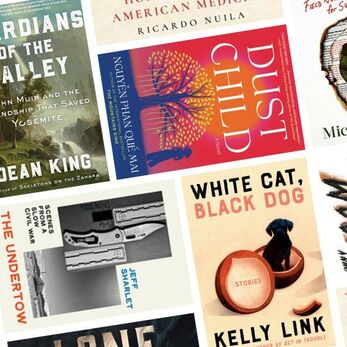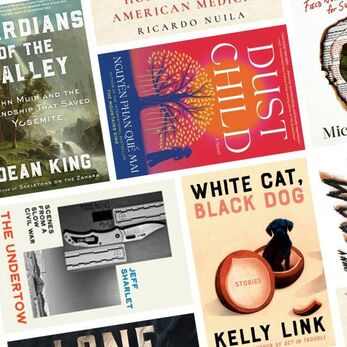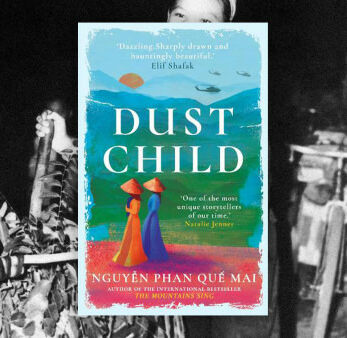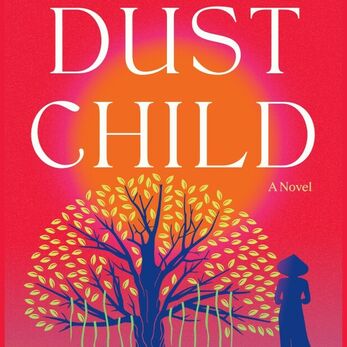'Dust Child' by Nguy?...n Phan Quế Mai revisits a tragedy of the Vietnam War: Amerasian children left behind and their absent GI fathers.
"Dust Child" by Nguyen Phan Quế Mai.
Photo: Algonquin Press
Forty-eight years ago, one of the most horrific wars in world history came to a close. The Vietnam War ripped apart families, decimated entire cities and villages, and saw millions of soldiers and civilians die on all sides.
Timed with the 50th anniversary of the United States’ withdrawal from the conflict, Nguyễn Phan Quế Mai's sophomore novel, “Dust Child,” comes out this month. It tells a moving story from an often-overlooked perspective — that of the Vietnamese women who had relationships with the American GIs and the (frequently abandoned) Amerasian children born out of that union.
The novel unfolds in three distinct but eventually intersecting narratives that jump back and forth in time from 2016 to 1969.
The first, perhaps the most underdeveloped, follows Phong, a mixed-race Vietnamese man trying to secure an American visa for himself and his family under the Amerasian Homecoming Act, which allowed parents and other immediate relatives of Vietnamese Amerasians to immigrate to the United States with their Amerasian children. When his request is denied for the second time due to lack of proof, Phong embarks on a circuitous journey to confirm his identity and track down his parents, including the Vietnamese mother who abandoned him at an orphanage during the war and the long-gone Black U.S. soldier thought to be his father.
The second thread centers on Dan, a white U.S. veteran in his 60s who suffers from PTSD and returns to Vietnam under the guise of a two-week trip with his high-school-sweetheart-turned-wife, Linda. What he’s not telling Linda is his real reason for being in the country: to find out what happened to “Kim,” the 19-year-old Vietnamese bar girl he had a relationship with during the war and subsequently deserted when he found out she was pregnant.
Nguyen Phan Quế Mai is the author of "Dust Child."
Photo: Tapu Javeri
Unsurprisingly, the most richly described and utterly convincing sections are those that tie the first and second story lines together. The bleak, smoke-filled scenes involving sisters 19-year-old Trang and 18-year-old Quỳnh — who work in a bar in Saigon, flirt and have “tea” (read: occasional sex) with U.S. soldiers so they can send money to their cash-strapped parents back home in Phu My village in 1969 — both provide historical context and shed light on how harsh and dangerous life really was for a group of people who were notoriously treated like trash or thought of as subhuman.
“Dust Child” isn’t the most complicated book out there. Astute readers will figure out the novel’s linchpins well before the commonalities between the three stories are officially revealed.
Given all the scheming involved, the Dan-and-Linda scenes are the most melodramatic (and weirdly whiny thanks to Dan’s guilt that frequently translates as navel-gazing lamenting: “It was she who rescued me. The war ... it was beyond terrible. Most guys I knew were into drugs and prostitutes. We all had to escape reality sometimes, so we could survive.”)
The dialogue can also feel a little stiff at times: “I want no American baby. No condom. No bang bang.” Overwrought, too: “You American vets have benefits, paid by your government. We have nothing. You have a wall in Washington, but we aren’t acknowledged there. We fought alongside you, yet you pretend we don’t exist.”

